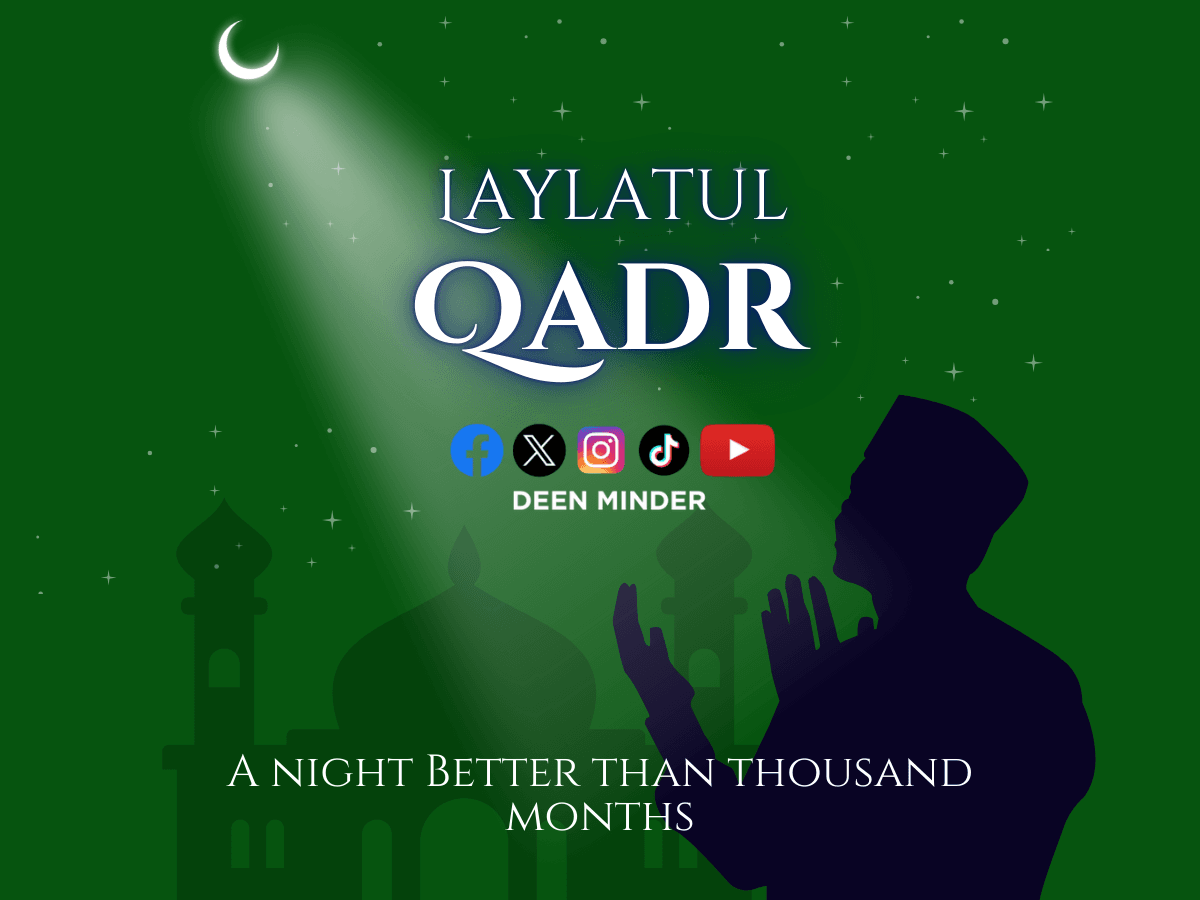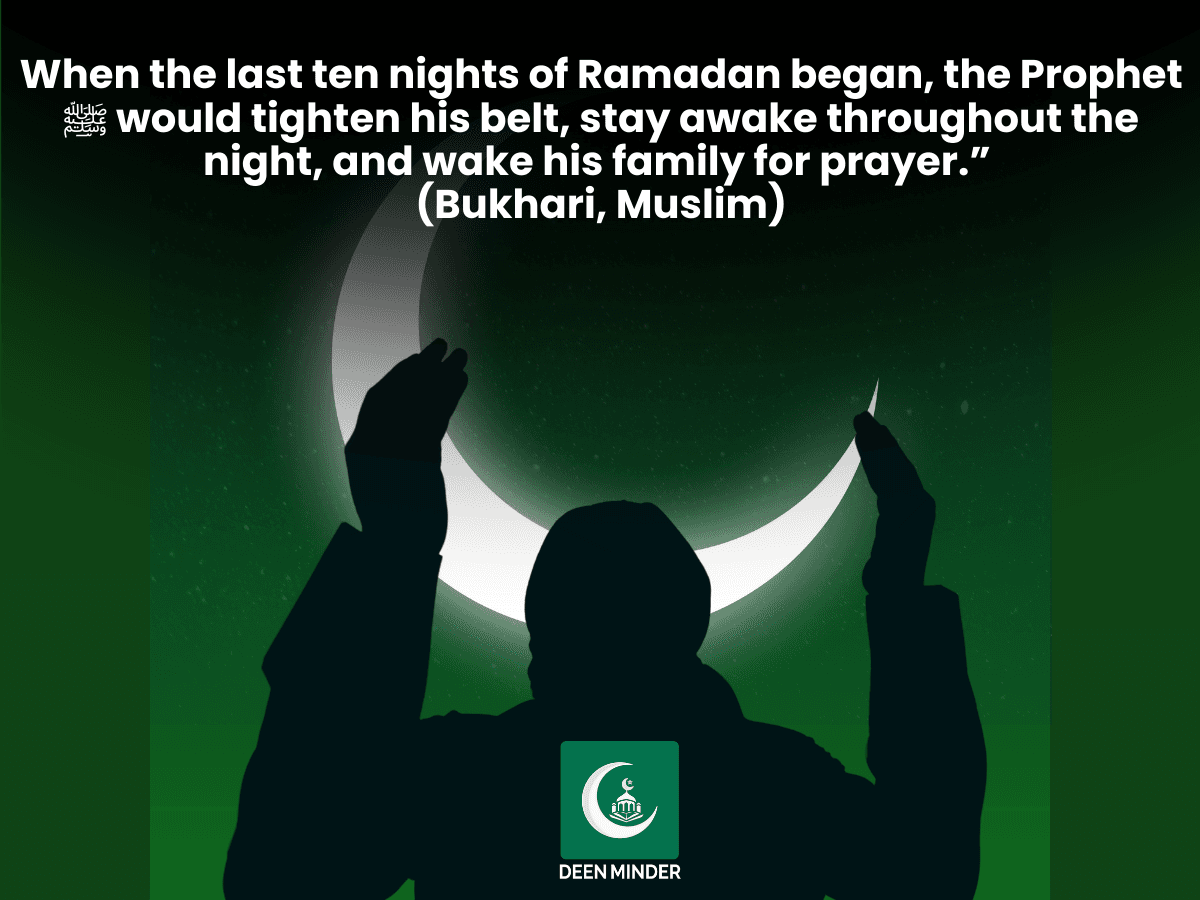Assalaamu alaikum my brothers in Islam. Imagine having a night like no other, a night better than a thousand months, a night when the heavens descend with mercy, forgiveness, and divine blessings. The greatest night lies in the last ten days of Ramadan, making the virtues of the last ten days of Ramadan of great significance.
But the virtues of the last ten days of Ramadan extend beyond Laylat al-Qadr only. These days are a time of intensified worship, increased charity, and good deeds. Throughout this blessed month of Ramadan, we Muslims strive for taqwa (God-consciousness), but in these final ten days, we increase in our worship more due to the virtues of the last ten days of Ramadan, which we are going to discuss below.
Why These Days Are Special in Islam
The Prophet Muhammad ﷺ understood the virtues of the last ten days of Ramadan so deeply that he would increase his acts of worship more than at any other time of the year. The Prophet Muhammad ﷺ would seclude himself in the mosque during these nights, engaging in Itikaf, to dedicate himself entirely to worship and supplication.
His example serves as a guiding light for Muslims striving to make the most of this blessed period. Aishah (رضي الله عنها) reported:
“When the last ten nights of Ramadan would come, the Prophet ﷺ would tighten his belt, stay up all night in prayer, and wake up his family.” (Bukhari, Muslim)
This is telling us that the final days of Ramadan require extra devotion, dedication, and effort. It is not a time to slow down but a time to push even harder, to seek Allah’s pleasure, forgiveness, and countless rewards. Let’s discuss the virtues of the last ten days of Ramadan now to encourage us in every act in these final days.
What are the blessings and virtues of the last ten days of Ramadan?
The virtues of the last ten days of Ramadan are beyond measure. These are not just ordinary days or nights; The last ten days of Ramadan are a treasure trove of divine blessings and unlimited rewards. These nights are a time when Allah’s mercy is at its peak, and the doors of forgiveness are wide open. For those who seize this opportunity, the rewards are massive, and the increase in Allah’s consciousness is exceptional.
Let’s explore the unique virtues and blessings of these final days, supported by evidence from the Quran, and the teachings of our Prophet Muhammad ﷺ.
1. Forgiveness of Sins
One of the greatest blessings of the month of Ramadan and especially the last ten days of Ramadan is the opportunity to have one’s sins forgiven. The Prophet Muhammad ﷺ said:
Ramadan to Ramadan are expiations for the sins committed between them, provided one avoids major sins.” (Sahih Muslim, 233)
“Whoever stands (in prayer) during Laylatul Qadr with faith and seeking reward, his previous sins will be forgiven.” (Sahih al-Bukhari, 2014)
This means that if a Muslim sincerely observes his fasting very well during Ramadan, particularly in the last ten days, seizing the opportunity of Laylatul Qadr, he can emerge from the month spiritually purified from his sins.
2. Increased Rewards for Good Deeds
The virtues of the last ten days of Ramadan include multiplied rewards for good deeds beyond human comprehension during these days.. Every deed done during these nights is multiplied many times over. This is especially valid for acts of worship such as prayer, Quran recitation, and charity. Allah specifically highlights Laylatul Qadr, saying:

“The Night of Decree is better than a thousand months.” (Surah Al-Qadr 97:3)
This means that every good deed performed on this night is rewarded as if it were done for over 83 years. For example, reciting a single page of the Quran or giving a small amount in charity on this night could yield rewards equivalent to doing so for a lifetime. Whao, what a moment like no other. This means that worship on this one night surpasses 83+ years of continuous devotion.
- One night of Salah = A lifetime of Salah
- One night of Quran recitation = A lifetime of Quran recitation
- One night of charity = A lifetime of charity
- And other good deeds…
Best acts of worship on Laylatul Qadr
To make the most of Laylatul Qadr, one should engage in:
- Prolonged prayers, Salah (Taraweeh and Qiyam-ul-Layl), by reciting long verses with sincerity.
- Reciting and reflecting on the Quran
- Making sincere dua, especially the dua for Laylatul Qadr taught by the Prophet ﷺ:
- Seeking forgiveness and repenting sincerely
- Giving charity sincerely
Imagine someone who always seizes this moment every year in the last ten days of Ramadan attaining Laylatul Qadr. It’s an opportunity too great to ignore. Our Prophet ﷺ really encouraged us to increase worship during these nights, as our mother Aishah (رضي الله عنها) reported that
“When the last ten nights of Ramadan began, the Prophet (peace be upon him) would tighten his waistcloth (i.e., strive harder in worship), spend the night in prayer, and wake his family.”
(Sahih al-Bukhari, 2024)
This shows that the Prophet ﷺ would go above and beyond in his worship during these nights, setting an example for all Muslims to follow.
3. Closeness to Allah
Among the virtues of the last ten days of Ramadan is the unique opportunity to draw closer to Allah through increased worship, reflection, and supplication. The best way to achieve this closeness is to perform Itikaf. In I’tikaf, Muslim secludes themselves in the mosque, dedicating their time entirely to worship and remembrance of Allah. The Prophet ﷺ used to do this very well.
“The Prophet (peace be upon him) used to perform I’tikaf in the last ten days of Ramadan until he passed away, and then his wives continued this practice after him.” (Sahih al-Bukhari, 2026)
I’tikaf allows one to disconnect from worldly distractions and focus entirely on worship. It creates a moment to reflect on one’s life, seek forgiveness, and make a lot of dua. Ramadan is a month of spiritual growth, but the last ten nights are the peak. The closeness to Allah that a believer can achieve during these nights is unmatched. The Prophet ﷺ demonstrated this through his actions, as mother Aishah (رضي الله عنها) narrated:

“When the last ten nights (of Ramadan) began, the Prophet ﷺ would tighten his belt, stay awake throughout the night, and wake his family (for prayer).” (Bukhari, Muslim)
This shows us how to maximize these nights to:
- Perform Itikaf to devote the last ten days for worship
- Increase Salah by performing extra nafl prayers, especially Tahajjud.
- Recite more Quran and reflect deeply on its meanings.
- Make abundant dua (dua for Laylatul Qadr), seek forgiveness, and ask Allah for Jannah, protection, and guidance.
- Seek Laylatul Qadr through consistent worship every night.
These nights are not just about worship alone, but they are about reconnecting with Allah at the deepest level. I hope we can see how massive the virtues of the last ten days of Ramadan are, which we all need to seize the great opportunities and rewards in them.
The Prophet ﷺ will engage himself in worship during these last ten days more than before, up to and including secluding himself in the masjid. Why? Because he knew the value of these moments. Thus, we encourage each of us to make use of these moments very well in following the steps of our Prophet ﷺ.
We ask Allah to accept our fasting, our prayers, our prostrations, and our dua. Aameen










Be First to Comment